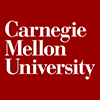Adjunct Instructor of Electronic Music - Max/MSP
 Carnegie Mellon University Carnegie Mellon University | |
 United States, Pennsylvania, Pittsburgh | |
 Nov 02, 2024 Nov 02, 2024 | |
|
Carnegie Mellon University: College of Fine Arts: Music Location Pittsburgh Open Date Oct 01, 2024 Deadline Nov 30, 2024 at 11:59 PM Eastern Time Description The School of Music at Carnegie Mellon University invites applications for an adjunct Instructor of Electronic Music for the Spring 2025 semester. We seek a colleague to teach the course Twisted Signals, a class in Max/MSP software for beginners to intermediate levels. This course presents an overview on manipulating and synthesizing sound, video, and control signals. Signals are the raw materials used in many forms of electronic art and design - electronic music, interactive art, video art, kinetic sculpture, and more. In these fields, signals are used to represent information about sound, images, sensors, and movement. By transforming and manipulating these types of signals, we are able to create powerful new tools for digital art, multimedia applications, music, responsive environments, video and sound installation, smart products, and beyond. In this course we will study Signal Processing from a practical point-of-view, developing tools that can be easily integrated into art-making using the graphical programming environment Max (a.k.a. Max/MSP/Jitter). The class presents a survey of Signal Processing techniques used in the sonic and visual arts, and will discuss the mathematical theories underlying these techniques. Students will be encouraged to combine, modify, and extend working examples of software to create original digital artworks. The qualified candidate will have developed innovative pedagogies that blend theory with practice, scholarship, creative work, and performance. Qualifications The successful candidate will possess a Masters of Ph.D. in creative technology, computer music, sound art, or other relevant fields. Alternatively, sufficient professional experience in teaching and creative technology practice could also be considered favorably. Application Instructions Application materials should include:
| |

